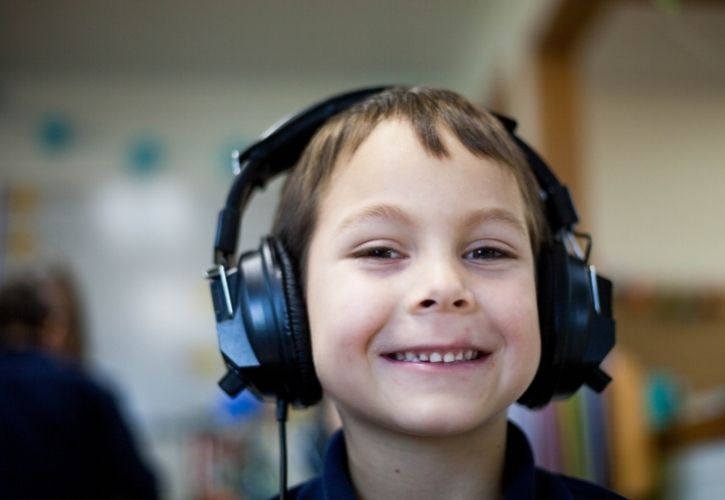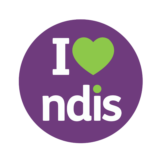Auditory Processing Assessments
This assessment examines different aspects of auditory processing to pinpoint any specific areas of difficulty and inform the most effective treatment.
(Available in our Hawthorn clinic)
.jpg)
Straight to:
 Auditory processing difficulties can have a profound impact on a child's literacy skills, hindering their ability to read, write, and spell effectively. These challenges can also significantly contribute to overall learning difficulties.
Auditory processing difficulties can have a profound impact on a child's literacy skills, hindering their ability to read, write, and spell effectively. These challenges can also significantly contribute to overall learning difficulties.
At our center, we have a team of highly skilled speech pathologists and auditory specialists who possess extensive expertise in addressing these specific concerns. Whether you are an NDIS participant or a private client, we are here to provide you with the support and guidance you need. Our tailored interventions aim to assist individuals who struggle with speech and language, enabling them to overcome their auditory processing difficulties and enhance their communication skills.
What are Auditory Processing Disorders?

Auditory Processing Difficulties (APD) occur when the brain is not able to recognise and interpret sound information correctly. It affects around 5% of children and 0.9% of adults1.
People with this condition have normal hearing however are unable to process information accurately in their auditory cortex, so cannot understand what they hear in the same way others do.
Children with APD can struggle to hear and understand verbal instructions, particularly when there is background noise, or the auditory/verbal information is compromised which impacts their literacy development and learning. APD may be confused with, or co-exist with other conditions such as ADHD, Autism, or Developmental Delay and it is not uncommon for children to be misdiagnosed or treated for their behavioural symptoms only, ignoring the auditory processing component.
Symptoms will vary from person to person however, the most frequently reported difficulties involve:
- Difficulty understanding speech, especially in the presence of background noise
- Slow/Delayed responses to auditory information
- Difficulty maintaining attention (e.g. poor listening skills, easily distracted by extraneous sounds)
- Poor auditory memory
- Difficulty following verbal instructions or needing these repeated/rephrased
- Inability to interpret speech cues (such as emotion and humour) or abstract ideas
- Over sensitivity to certain sounds or being distracted by ambient noise
Difficulties in vocabulary, reading, writing and spelling especially when compared to peers - Hesitant speech and difficulty with word retrieval
Diagnosing Auditory Processing Difficulties

Early diagnosis is important as children with APD will benefit significantly from pro-active intervention and support. If the condition is not managed it can leave children at risk for listening and learning problems at home and school.
It’s also key to evaluate auditory processing with an appropriate clinical assessment. While APD is often confused with, or may co-exist with other disorders, it is specific to an auditory processing deficit and not the result of any cognitive, language or related disorder. Careful, systematic testing is the best way to ensure an accurate diagnosis that can inform the most suitable treatment.
We offer two main types of auditory processing assessments:
-
Suitable for children, adolescents, and adults aged 5 and older
This is a detailed assessment of auditory processing skills which involves participating in several specific listening tests including:
- Auditory memory testing: Auditory memory plays a crucial role in literacy, directly impacting reading, writing, spelling and maths. This test measures a child or adult’s ability to listen to information presented orally, encode it, and repeat it.
- Auditory processing skills assessment: The participant will listen to and repeat words and sentences under various complex auditory conditions using headphones. It assesses Auditory Closure, Auditory Figure Ground Differentiation, Understanding Rapid Speech, and the Dichotic Listening Skills of Binaural Separation and Integration.
- Phonological Processing assessment: Children will also undertake assessment of the phonological processing skills of Elision, Sound Blending, and Phoneme Isolation
- Auditory and Visual Attention assessment: Participants will undertake a continuous performance computerised auditory/visual attention assessment to determine auditory attention skills.
NOTE: Your child will need to have completed an updated hearing test prior to assessment. This is to ensure to ensure any difficulties are not caused by any difficulty hearing, rather than with auditory processing.
-
Suitable for children aged 3 and older
The BioMARK assessment of Brainstem Level Auditory Processing (or BioMARK) is an electrophysiological assessment of the lowest, brainstem level of auditory processing and is suitable for children under 5. It is also suitable for children with severely delayed speech and language who are unable to listen to and repeat words. The assessment requires the attachment of electrodes and placement of a foam earpiece to play sounds.
The involves sitting relatively still for about 15 minutes while the complex speech sound “da” is played in the right ear and the computer records brain response via electrodes.
Due to its setup, this assessment is unlikely to be suitable for children with severe sensory processing difficulties.
Our personalized treatment programs

Once the assessment is completed, neurocare will provide a report detailing the results, a clinical evaluation and a series of customised recommendations to help your child manage any areas of concern. This may include practical suggestions such as amended seating arrangements in school or the use of visual cues for verbal instructions, as well as clinical programs that focus on training and improving auditory processing skills in a therapy setting.
The Auditory Training Program™ may also be recommended to support your child in overcoming any areas of concern and achieve their full potential.
Support for NDIS participants
 neurocare is a registered NDIS provider, and we provide programs under the Capacity Building stream. While specific support and funding will be based on your individual goals, we generally support participants under Improved Daily Living or Social and Community Participation.
neurocare is a registered NDIS provider, and we provide programs under the Capacity Building stream. While specific support and funding will be based on your individual goals, we generally support participants under Improved Daily Living or Social and Community Participation.
We commonly support participants with:
- Developmental delays and intellectual disability
- Specific learning disability in reading, writing or spelling
- Neurodevelopmental disorders such as autism spectrum disorder, Down syndrome, or cerebral palsy
We work collaboratively with NDIS participants, carers, families, and support workers to set meaningful goals and deliver supports to help you achieve the outcomes you are aiming for.
Not sure if our services are right for you?

